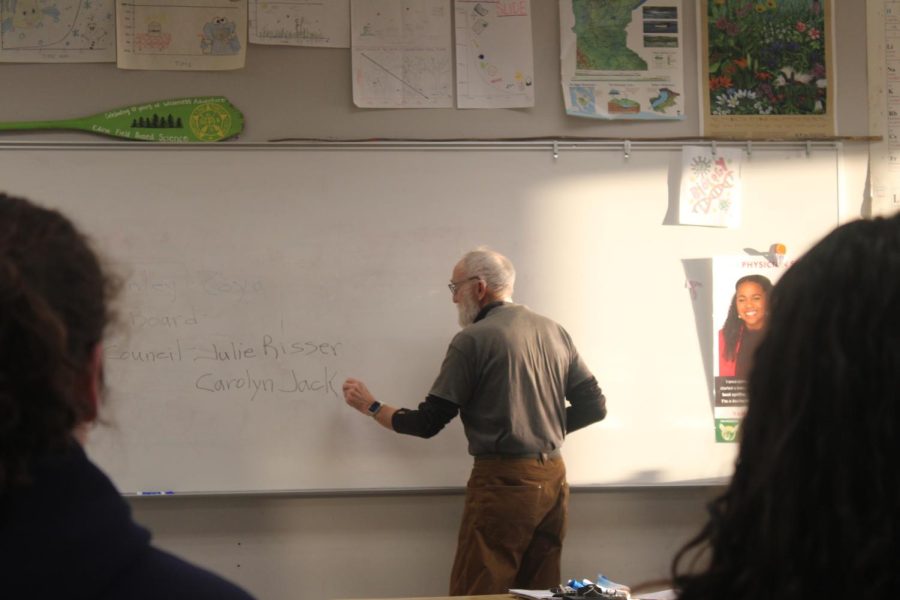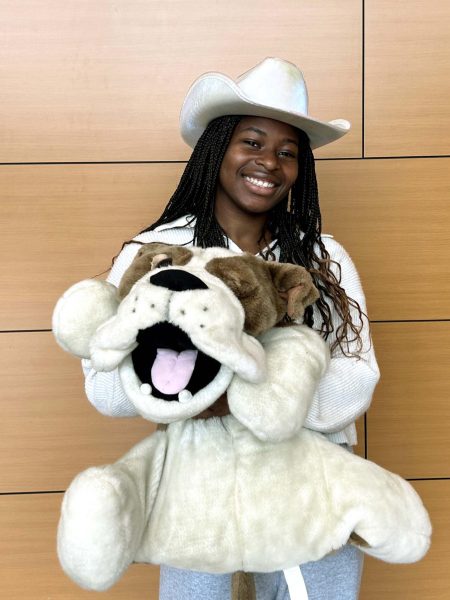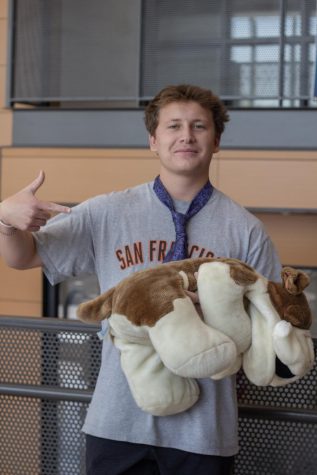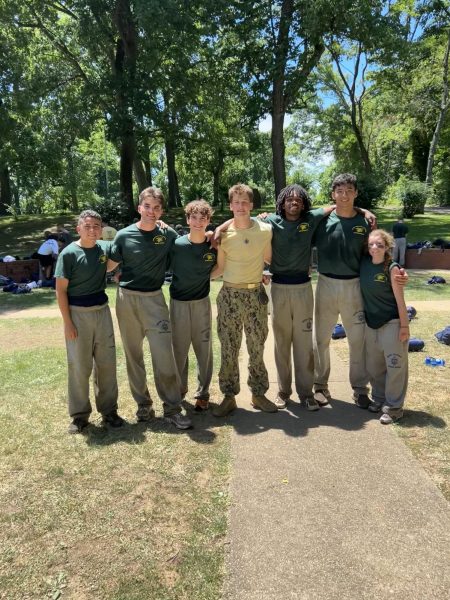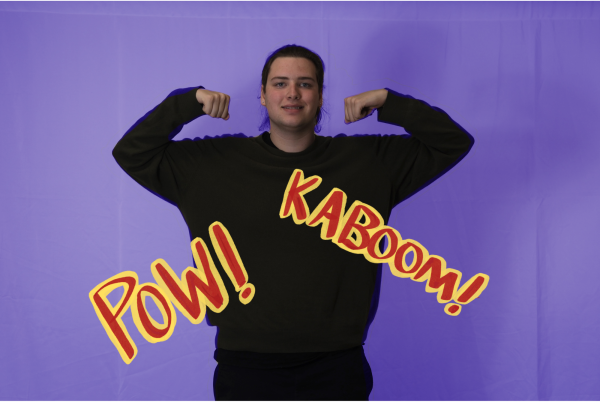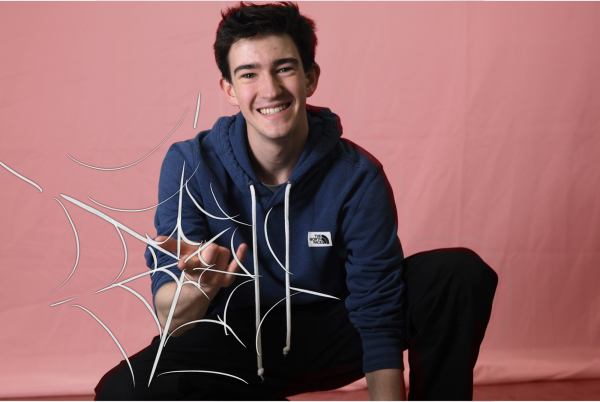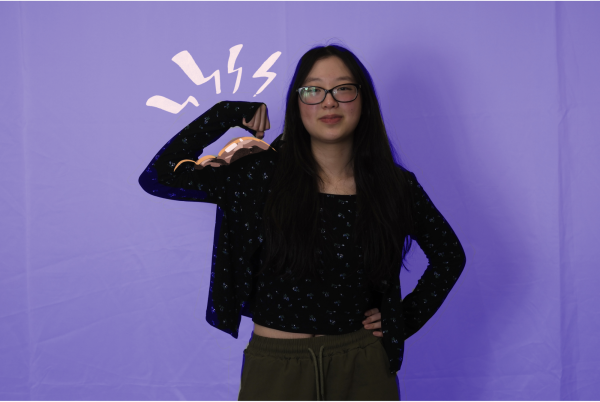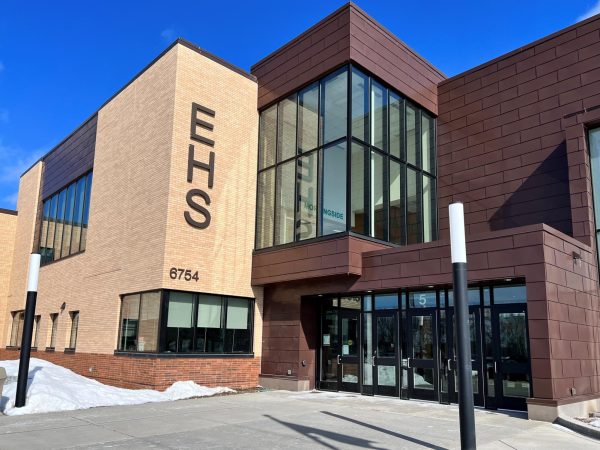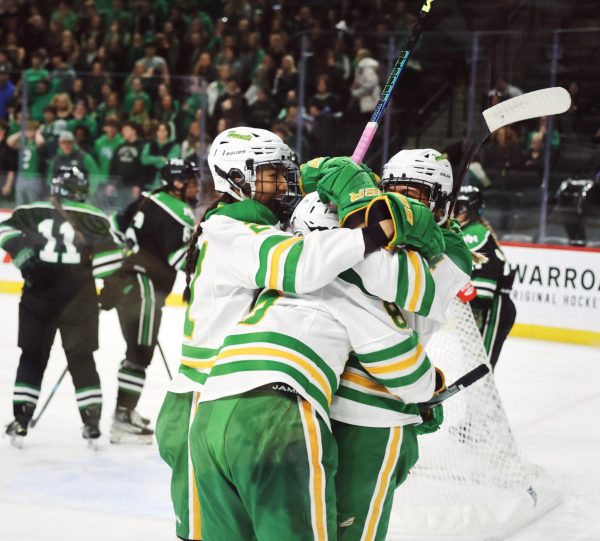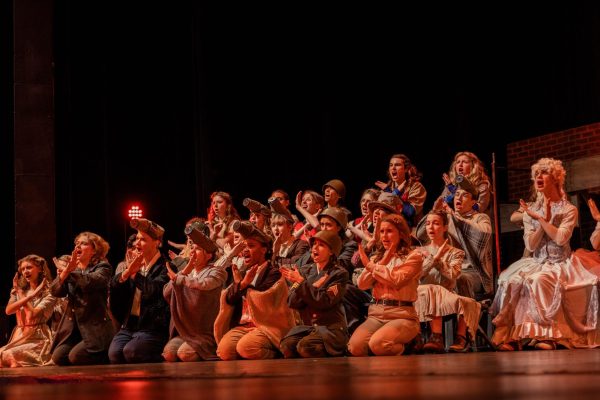EHS’s Project Earth pushes for the reimplementation of compostable trays and changes towards sustainability
Paul Thompson leading a Project Earth meeting in front of students/club members.
Walking into Edina High School’s cafeteria, junior Evangelia Karoussos sees styrofoam lunch trays being used to serve students’ food. As a Project Earth leader, Karoussos and other club members spent all of last school year working with Principal Andrew Beaton, school custodians, the school board, and lunchroom staff under Chartwells—the nutrition company contracted with EHS—to implement compostable lunch trays, which failed to be realized.
Founded around 30 years ago, Project Earth is an environmental organization that began in the Edina community. Project Earth eventually found its way to EHS as a club and has since engaged in outreach events and community-based projects to combat the ongoing climate crisis.
Project Earth President and senior Olivia Machart remembers seeing compostable trays being used in the lunchroom during the 2019-2020 school year. However, they were replaced with styrofoam trays the following school year. Pushing for the return of compostable trays was a major goal of the club since styrofoam cannot be recycled and contains carcinogens, which are cancer-causing substances.
While the school has since started to infrequently use compostable trays, the complete switch away from styrofoam has yet to occur.
“They told us that [the compostable lunch trays] would be here after winter break, and they’re not, so we’re gonna have to talk to them…That really aggravates me,” Karoussos said.
However, switching to compostable lunch trays is just Project Earth’s first step towards sustainability. Members want to make students and staff more aware of their composting options by using the TVs in the cafeteria and presenting videos during advisory.
“We talked with the custodians about the trays, and they [said] part of the trouble with them is that a lot of kids don’t really care and will just put the compostable trays anywhere,” sophomore club member Abby Miller said. “We also had an issue with the bin: there’s only one compost bin and a lot of people don’t know where it is.”
Project Earth wanted to take a step further to using reusable trays; however, due to the COVID-19 pandemic, Chartwells’ lack of funding to hire more staff to clean the trays eliminated the possibility.
“We’re looking at if there’s something the school’s lacking, if we could try to supplement it with volunteers,” Machart said. “We could work with K-12 or especially freshman [who] have a prep, and I don’t know how much they use it, but they could work towards getting a service letter or other things during school hours.”
While the club faced obstacles that prevented them from achieving their goal of fully incorporating the use of compostable trays, the club has a history and future of organizing events and successfully meeting other goals that face climate change.
Late last school year, the club hosted their Climate Summit where a panel of speakers facilitated a conversation about climate issues. The club continued to host environmental events, like tree plantings and river clean-ups that took place last fall.
“We started tabling events at Jerry’s and Lunds & Byerlys. We’re also just making sure that the members are talking with their friends to join the meetings,” sophomore Project Earth leader Zoya Hasan said.
Outside of their work in compostable trays, Project Earth has pushed for other changes for EHS and the district. Last year, they met with the school board to successfully pass the Climate Action Plan—a list of 200 steps for Edina to take to achieve specific goals by 2030, like lowering Edina’s greenhouse emissions to match those listed in the Paris Agreement—which will begin implementing sustainability assessments for the school.
Broadcasting on Feb. 6 as a webinar, a four-person panel, consisting of members of the Energy and Environment Commission and Minnesota Senator Tina Smith, will meet to discuss the Inflation Reduction Act passed in December of 2022. Junior Suryash Rawat, another student leader on Project Earth, will be on the panel.
“I think the meeting with Tina Smith will be really interesting because it gets a lot of parents and adults involved as opposed to just kids because it’s more about what households can do to reduce their impact,” Miller said.
In a few months, Project Earth plans to host a clothing swap in collaboration with the city. The event will operate similarly to a thrift store but without any monetary transactions; the day will end with a fashion show of the assembled outfits.
“Fashion is a huge issue, especially with the overconsumption of clothing—especially among younger people—due to social media and micro-trends. So, in order to promote more sustainability, we’re doing a clothing swap,” Machart said.
To discuss these projects, Project Earth meets weekly on Thursday mornings. Paul Thompson, a community member and returned Peace Corps volunteer, helps advise the meetings with the goal of elevating student voices.
“The kids’ voice, that’s the key message. Get the youth voice publicized and encourage people to come together, not to address the problem, but to talk about solutions, and to work together to build community,” Thompson said.
Passionate about the environment and her carbon footprint, Karoussos wants to be mindful of her and her peers’ impact on the planet.
“I think that climate change affects our generation and the next generation more than anybody before,” Karoussos said. “I’ll be scared to have kids one day because maybe they won’t live to their fullest potential because of how our Earth [will be] at the time. I want to provide an environment where my kids will actually enjoy it like I did.”

